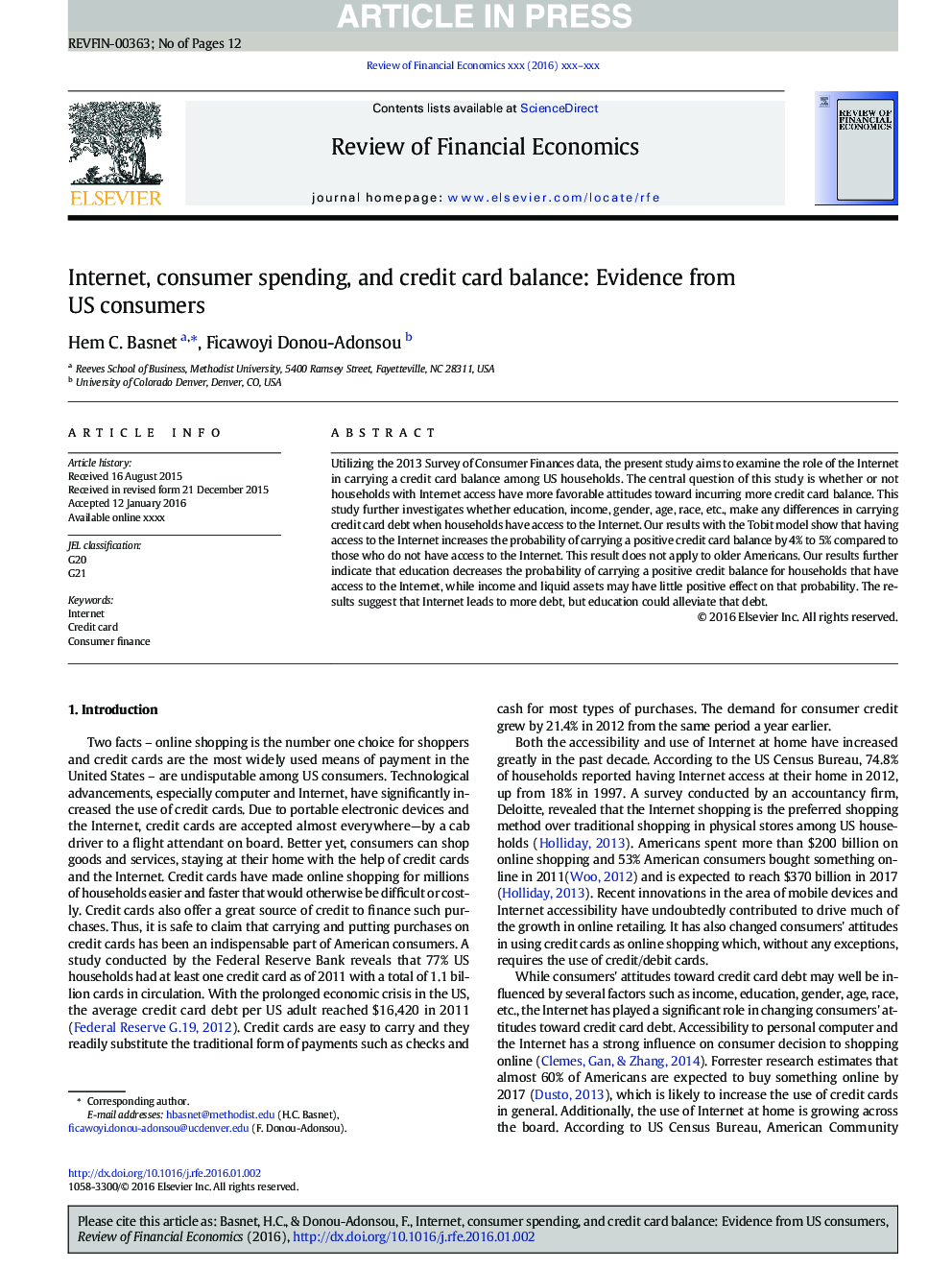| Article ID | Journal | Published Year | Pages | File Type |
|---|---|---|---|---|
| 5104411 | Review of Financial Economics | 2016 | 12 Pages |
Abstract
Utilizing the 2013 Survey of Consumer Finances data, the present study aims to examine the role of the Internet in carrying a credit card balance among US households. The central question of this study is whether or not households with Internet access have more favorable attitudes toward incurring more credit card balance. This study further investigates whether education, income, gender, age, race, etc., make any differences in carrying credit card debt when households have access to the Internet. Our results with the Tobit model show that having access to the Internet increases the probability of carrying a positive credit card balance by 4% to 5% compared to those who do not have access to the Internet. This result does not apply to older Americans. Our results further indicate that education decreases the probability of carrying a positive credit balance for households that have access to the Internet, while income and liquid assets may have little positive effect on that probability. The results suggest that Internet leads to more debt, but education could alleviate that debt.
Related Topics
Social Sciences and Humanities
Economics, Econometrics and Finance
Economics and Econometrics
Authors
Hem C. Basnet, Ficawoyi Donou-Adonsou,
